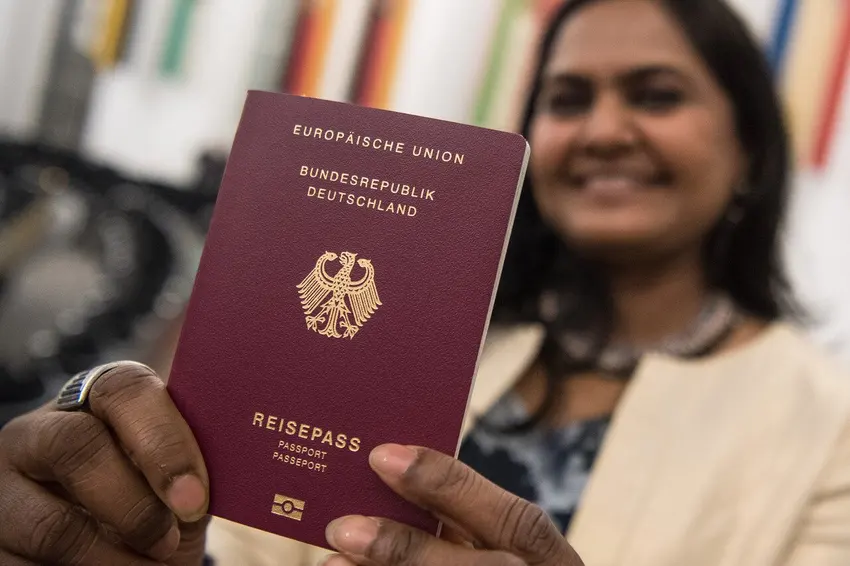- Chancellor Scholz’s coalition introduces a law cutting citizenship for Germany to five years, ending the dual nationality ban.
- The new law reduces waiting time to three years for exceptionally integrated individuals and allows dual nationality, a significant departure from past policies.
- Interior Minister Faeser underscores the law’s role in global labor competition, while critics, including conservatives and AfD, fear devaluation of the German passport and societal divisions.
Germany has introduced a landmark naturalization law, spearheaded by Chancellor Olaf Scholz’s centrist-left coalition, aimed at attracting more migrant workers. Despite facing criticism during a heated parliamentary debate, the law represents a significant departure from Germany’s historically stringent citizenship requirements.
Germany Announces Ease in Residency Requirements
Under the new law, the period of residence required for citizenship has been reduced from eight to five years, aligning Germany with neighbouring countries like France. Furthermore, individuals who demonstrate exceptional integration may be eligible for citizenship after just three years of residency.
End of Dual Nationality Ban
Another noteworthy change is the abolition of the ban on dual nationality, a policy that was previously limited to citizens of other EU countries. This revision allows tens of thousands of German-born Turks, whose families contributed to the post-war reconstruction, to become fully participating members of German society while retaining their Turkish citizenship.
Germany, once known for having one of the world’s most restrictive immigration laws, is embracing a more inclusive approach. Previously, citizenship was granted primarily to those with distant German ancestors. This shift acknowledges the nation’s diverse and multicultural reality, shaped by the arrival of guest workers from Italy and Turkey in the 1960s.
Also Read:
UK Announces Visa-Free Entry for Selective Islamic Countries
Germany to Compete Globally for Skilled Labor
Interior Minister Nancy Faeser emphasized the necessity of the new law in competing globally for skilled labor, echoing the strategies of countries like Canada and the United States. This move is seen as essential amid a global economic downturn and increasing competition for qualified professionals.
“We need to make an offer to qualified people from the world over, just as the United States and Canada do. German citizenship is obviously part of that.”
Critics Believe This Will Devalue the German Passport
Despite progressive intentions, the law faces opposition from conservative parties and the far-right Alternative for Germany (AfD). Critics argue that the legislation could lead to the devaluation of the German passport and exacerbate divisions within society. The AfD, currently gaining support in polls, opposes the law, accusing the government of seeking to create new voters.
Also Read:
Germany Opens More Than 770,000 Job Vacancies
Chancellor Scholz believes welcoming the new citizenship law is the right way to go about the improvement of the country’s situation. In a video message, he expressed support for nationwide protests against right-wing extremism, reinforcing the message that those who have lived and worked in Germany for years, adhering to the laws, truly belong to the country.
Have anything to add to the story? Let us know in the comments below.
Follow WOW360 for more.
